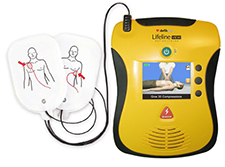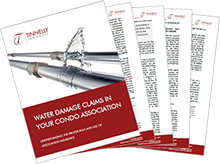 On August 27, 2015, the National Labor Relations Board (“NLRB”) published its decision in the Browning-Ferris Industries of California, Inc. case (“BFI Case”). In that case, Browning-Ferris Industries of California, Inc. (“BFI”) retained the services of Leadpoint Business Services (“LBS”) to provide staff to one of BFI’s recycling facilities. The contract between BFI and LBS recognized, and the parties understood, that the personnel staffed by LBS were the employees of LBS. Nevertheless, given the fact that the contract granted BFI with some control over the employees of LBS, the NLRB concluded that BFI was a joint-employer of LBS thereby obligating BFI to comply with federal labor laws.
On August 27, 2015, the National Labor Relations Board (“NLRB”) published its decision in the Browning-Ferris Industries of California, Inc. case (“BFI Case”). In that case, Browning-Ferris Industries of California, Inc. (“BFI”) retained the services of Leadpoint Business Services (“LBS”) to provide staff to one of BFI’s recycling facilities. The contract between BFI and LBS recognized, and the parties understood, that the personnel staffed by LBS were the employees of LBS. Nevertheless, given the fact that the contract granted BFI with some control over the employees of LBS, the NLRB concluded that BFI was a joint-employer of LBS thereby obligating BFI to comply with federal labor laws.
In adopting a new legal standard for determining joint-employer status, the NLRB emphasized that such a determination should not be based solely on actual control over the employees of another, but the “existence, extent, and object of the putative joint employer’s control.” (Browning-Ferris Industries of California, Inc. (2015) 2015 NLRB No. 672, *12 (Emphasis added).) Otherwise, employers would be able to insulate themselves from their responsibility to comply with federal labor laws. (Id. at p. *21) Accordingly, as long as a company retains (e.g., through the execution of a contract) the authority to control the employees of another, said company shall be given joint employer status. (Id. at p. *2.) This is true even if control is exercised indirectly (e.g., through an intermediary). (Id.)
Many associations retain a community management firm for the purpose of executing the duties of the association. These community management firms in turn employ community managers and support staff to manage these associations. While historically recognized as the employee of the community management firm (and an independent contractor of the association), the BFI Case raises some questions with respect to the nature of the relationship between the employees of a community management firm and the association. Accordingly, associations must be cognizant that a Court may find that it is a joint employer of the community manager (and support staff), notwithstanding the fact that it exercises no direct and immediate control over said manager.
Similarly, associations and management companies must take care when hiring maintenance and service providers for the community. When managers, committee members, or board members are conducting job walks with a contractor’s employee, reviewing specifications, or receiving invoices, the management company and the association may become joint employers. In Heiman v. Worker’s Compensation Appeals Board, Cal: Court of Appeal, 2nd Appellate Dist., 3rd Div. 2007 (“Heiman”), a community association manager hired an unlicensed and uninsured contractor on behalf of the association to install rain gutters on the condominium buildings. An employee of the contractor was seriously injured on the first day of the project and sued the contractor, management company, and association for workers’ compensation. The Court held that the contractor, the association, and the management company were all joint employers because the contractor hired the injured employee, and the management company, as agent of the association, hired the contractor. The BFI Case seems to affirm this decision.
 |
In order to insulate the association from a possible finding of joint-employer status, the association should ensure that its contract with independent contractors, requires all proper licenses and insurance, adequately sets forth the desired results, and sets forth the level of care and skill to be used in accomplishing the desired results. (See Id. at p. 12 (“mere ‘service under an agreement to accomplish results or to use care and skill in accomplishing results’ is not evidence of an employment, or joint-employment relationship”).) The agreement should also include a provision that requires the contractor to indemnify and hold the association harmless in the event a labor dispute arises. |
Blog post authored by TLG attorney, Matthew T. Plaxton.
 Assembly Bill 2912 (“AB 2912”) was recently enacted by the California Legislature. Its changes to the law, which take effect January 1, 2019, are intended “to protect owners in a [HOA] from fraudulent activity by those entrusted with the management of the [HOA’s] finances.” To that end, AB 2912 (a) significantly increases the financial review requirements of HOA boards of directors, (b) limits the ability for automatic transfer of HOA funds without board approval, and (c) imposes a requirement for the HOA to purchase and maintain a fidelity bond.
Assembly Bill 2912 (“AB 2912”) was recently enacted by the California Legislature. Its changes to the law, which take effect January 1, 2019, are intended “to protect owners in a [HOA] from fraudulent activity by those entrusted with the management of the [HOA’s] finances.” To that end, AB 2912 (a) significantly increases the financial review requirements of HOA boards of directors, (b) limits the ability for automatic transfer of HOA funds without board approval, and (c) imposes a requirement for the HOA to purchase and maintain a fidelity bond. HOA Lawyer Blog
HOA Lawyer Blog


 The issue of whether or not a homeowners association is required to install and maintain an automated external defibrillator (“AED”) on-site is a question that has not been directly addressed by California courts. As a result, many community members and Board of Directors (“Board”) seek legal guidance and clarity as to the same. In particular, associations that maintain common area facilities and accommodations such as a gym, basketball court, tennis court, or swimming pool, feel the need to maintain an AED due to the rising number of lawsuits that are being filed against businesses and corporate entities for failing to maintain same.
The issue of whether or not a homeowners association is required to install and maintain an automated external defibrillator (“AED”) on-site is a question that has not been directly addressed by California courts. As a result, many community members and Board of Directors (“Board”) seek legal guidance and clarity as to the same. In particular, associations that maintain common area facilities and accommodations such as a gym, basketball court, tennis court, or swimming pool, feel the need to maintain an AED due to the rising number of lawsuits that are being filed against businesses and corporate entities for failing to maintain same. *New Library Article!
*New Library Article! On August 27, 2015, the National Labor Relations Board (“NLRB”) published its decision in the
On August 27, 2015, the National Labor Relations Board (“NLRB”) published its decision in the  One of the primary purposes of any homeowners association (HOA) is to manage, maintain and repair the
One of the primary purposes of any homeowners association (HOA) is to manage, maintain and repair the 
 *New Library Article
*New Library Article